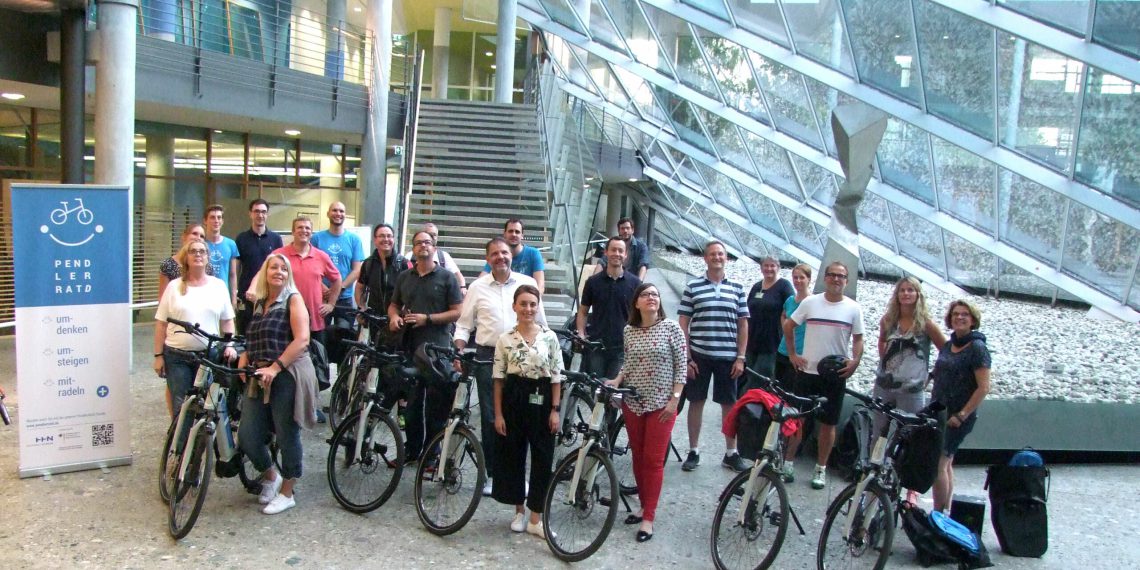The intention of the National Cycling Plan 2020 (NRVP 2020) is to motivate more people to cycle to work. The goal is to make cycling more attractive and safer and to strengthen the so-called environmental alliance of public transport, walking and cycling as a whole.
Heilbronn University was involved in the NRVP 2020 from 2018 to 2021 with the research project “PendlerRatD” led by Professor Jana Heimel. The goal of the research project was to encourage commuters who drive to work to switch to bicycles. A platform was programmed to support the test persons during the entire process.
This project was funded by the BMVI, the Dieter Schwarz Foundation, Landesbank Baden-Württemberg (LBBW), Bosch e‑Bike and the AOK, and was actively accompanied and supported by more than 30 organizations from the Stuttgart and Heilbronn region.
“The potential of the bicycle as a mainstay of the transport turnaround is huge. Someone needs to aggressively take on the role of motivator.”
- Professor Heimel of Heilbronn University
In total, more than 100 test subjects participated in the second pilot phase in 2020. The vast majority of the participants* were equipped with a pedelec for seven months and also received intensive support during this phase. Satisfaction with regard to the environment, time, health and costs is higher among cyclists than among all other road users. The majority of the surveyed drivers would like to cycle to work. Over 51% of respondents said they would.
What keeps the test cyclists from not using a bicycle on a daily basis?
Corona and the associated possibility of working in a home office were the main reasons in the second pilot phase why trips to work were not taken. In addition, inappropriate route chains and weather were cited as general reasons for not using a bicycle.
During both pilot phases, the following and main results were obtained. A total distance of 120,586 km was cycled by all test persons. This corresponds to 2.8 times around the world. Approximately 19 tons of CO2 were saved in the process. On average, each of the participants commuted 34 km per day and thus spent 78 minutes per day on the bicycle. More than 85% of the test cyclists want to continue commuting by bike.
Now the project is entering the next phase. The research project will become a nationwide rollout of the first phase by mid-2024. Results from PendlerRatD will now be rolled out across Germany in a three-stage process. To this end, pilots will be organized with a total of at least 200 test cyclists. This year, the pilot will start in the southern German states. In parallel, the PendlerRatD app will be converted into a native app with appropriate design and usability and expanded to include a ticketing and reporting system. Furthermore, a reporting system is to be developed and linked to existing municipal IT systems, among others, in order to enable the expansion of infrastructure in the municipalities but also at employers (showers, changing rooms, parking facilities or similar) through push and pull messages. A possible permanent switch from car to bike can work if the switch is made as easy as possible.
One test cyclist summarizes her experience as follows: “It was so great to be able to try this with the e‑bike. Now it’s a sense of freedom when commuting, you’re not stuck in traffic anymore, which is great.” The first bike handover, is scheduled for April 1 in Neckarsulm (possibly also at the HHN Education Campus). Currently, the third PendlerRatD study is underway to evaluate, among other things, current commuting behavior and attitudes toward commuting and to compare them with the results of previous studies over time.

















